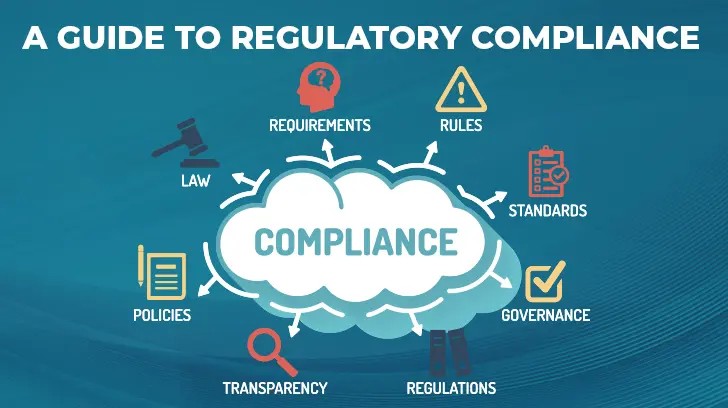Real Estate Transactions: Avoiding Legal Pitfalls in the Vietnamese Market
Vietnam’s real estate market has gained significant traction, attracting both local and foreign investors due to its promising growth potential and evolving regulations. However, navigating the complexities of real estate transactions in Vietnam can present various legal challenges and risks. Understanding the legal landscape, recognizing potential pitfalls, and taking proactive steps to mitigate risks are essential for successful real estate investments. This article explores key considerations and strategies for avoiding legal pitfalls in real estate transactions within the Vietnamese market.
Understanding the Regulatory Framework
The legal framework governing real estate transactions in Vietnam encompasses several laws, including:
- Land Law: This law regulates land ownership, land use rights, and management practices. It defines the types of land usage, rights of landowners, and conditions for land lease agreements.
- Law on Real Estate Business: This law governs the development, transfer, and leasing of real estate, providing guidelines for real estate businesses and transactions.
- Civil Code: The Civil Code establishes rules governing contractual relationships, including the buying and selling of property, lease agreements, and property rights.
- Investment Law: This law outlines regulations for foreign investment in the real estate sector, including conditions for foreign ownership limits and property development rights.

Key Pitfalls in Real Estate Transactions
Despite the growing opportunities in the Vietnamese real estate market, potential pitfalls can jeopardize transactions. Recognizing these risks is crucial for ensuring successful investments.
1. Title and Ownership Issues
One of the most significant risks in real estate transactions is the issue of title and ownership. Investors must ensure that the seller has clear and legal ownership of the property. Common issues include:
- Incomplete Documentation: Verify that all relevant documents related to the property are complete, including land use rights certificates, property titles, and survey maps. Any lack of documentation may lead to disputes regarding ownership.
- Disputed Ownership: Investigate any histories of disputes involving the property, as unresolved claims or competing interests can impede your ownership rights.
2. Regulatory Compliance
Failure to comply with local laws and regulations can lead to significant legal consequences. Essential considerations include:
- Zoning and Land Use Regulations: Ensure that the property complies with zoning laws and that the intended use aligns with legal requirements. Engage legal professionals to confirm the permitted use of the property.
- Environmental Regulations: Be aware of any environmental regulations applicable to the property, including assessments for environmental impacts. Failure to comply with these regulations can result in fines or remediation obligations.

3. Foreign Ownership Limits
For foreign investors, understanding the legal limits on property ownership in Vietnam is vital. Key points include:
- Foreign Ownership Restrictions: The law allows foreign individuals to own up to 30% of a condominium and 10% of landed property in certain projects. Ensure you are aware of these limitations to avoid unlawful ownership arrangements.
- Joint Ventures: Consider partnering with local enterprises for property investments, as it may provide more favorable terms under Vietnamese laws regarding foreign ownership.
4. Contractual Risks
The presence of poorly drafted contracts can lead to misunderstandings, disputes, and potential losses. Key strategies to mitigate contractual risks include:
- Clear Contract Terms: Ensure that contracts detail all terms, conditions, and obligations related to the transaction. Ambiguities can lead to legal disputes and impact the enforceability of the contract.
- Legal Review: Engage a qualified real estate attorney to review contracts before signing, ensuring that all terms are compliant with local laws and adequately protect your interests.
5. Payment Terms and Financing Risks
Payment terms in real estate transactions can involve considerable sums of money and must be handled with care. Key aspects include:
- Payment Schedules: Clearly outline payment terms, schedules, and conditions for the release of payments in the contract. This helps prevent misunderstandings regarding financial obligations.
- Secure Financing: Ensure that financing deals comply with local regulations. Engage financial advisors to review any loans or financing agreements to avoid unanticipated legal issues.
Strategies for Avoiding Legal Pitfalls
To navigate the complexities of real estate transactions and minimize legal risks, consider the following strategies:
1. Conduct Thorough Due Diligence
Performing comprehensive due diligence is vital before finalizing any real estate transactions. Key aspects of due diligence include:
- Property Search: Investigate property ownership through public records, verifying that the seller has clear title and rights over the property.
- Site Inspections: Conduct physical inspections of the property to assess its conditions, zoning compliance, and any potential issues that could affect its value.
- Review Relevant Contracts: Examine existing rental agreements, leases, or any contractual obligations that may impact property ownership or use.
2. Work with Experienced Professionals
Engaging qualified professionals enhances the likelihood of a successful transaction while protecting your investments. Consider the following experts:
- Real Estate Agents: Collaborate with reputable local real estate agents who have in-depth knowledge of the market and regulations.
- Legal Counsel: Hire experienced civil litigation attorneys or real estate lawyers who specialize in property transactions to guide you throughout the process.
- Financial Advisors: Consult financial experts to assess the financial implications of the transaction and evaluate the financing options available.

3. Establish Clear Communication
Effective communication with all parties involved in the transaction can help prevent misunderstandings and disputes. Key practices include:
- Regular Updates: Maintain regular contact with agents, lawyers, and other professionals involved in the transaction to ensure everyone is informed of developments.
- Address Concerns Promptly: If issues arise, address them immediately to prevent escalation. Open communication fosters collaborative problem-solving.
4. Utilize Mediation and Arbitration
In the event of disputes, consider mediation or arbitration as alternatives to litigation. These methods can save time and costs associated with traditional court proceedings:
- Mediation: Involves a neutral third party facilitating discussions between conflicting parties to reach a mutually agreeable solution.
- Arbitration: A more formal process where an arbitrator makes a binding decision regarding the dispute. Including arbitration clauses in contracts can streamline the resolution process.
Conclusion
Navigating the real estate market in Vietnam presents unique challenges, especially concerning legal compliance and the potential for disputes. By understanding the legal frameworks, recognizing common pitfalls, and implementing proactive strategies, investors can protect their real estate investments effectively. Engaging experienced property dispute attorneys and leveraging professional expertise throughout the transaction process are crucial steps in safeguarding your interests. By taking these considerations seriously, individuals and companies can successfully navigate Vietnam’s real estate landscape, ensuring their investments thrive in this dynamic market.
